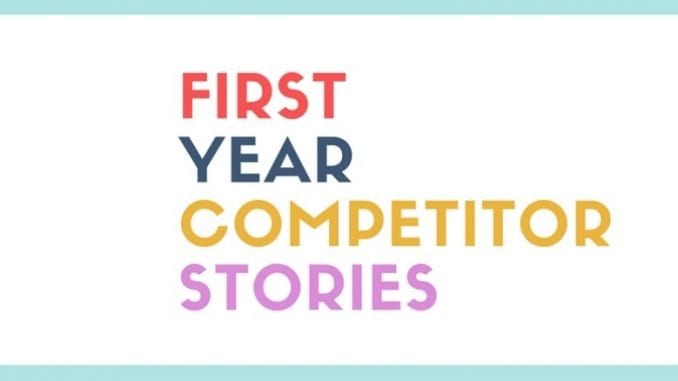
Spilled drinks, misunderstood rules, and countless hours of practice—this is what first year coffee competitors go through. We’ll revisit their experiences for stories that will inspire, motivate, and perhaps make you cringe.
In this new series, we’ll share stories from competitors’ first year of competition at the United States Coffee Championships. Some stories will be from newly minted competitors, and others will share the success and horror stories from veteran competitors in seasons past. (Read Volume 1 here.) If you’re interested in contributing a story about your first year of competition, drop us a line!
VOLUME 2: BY AMY TROMPETER
Amy shares her experiences competing for the first time at this year’s USCC Preliminaries in Washington, D.C., what motivated her to compete, and how she coped with dozens of sips and tastes of espresso.
I didn’t really mean to do barista competition. If it weren’t for intense peer pressure from my coworkers at Ultimo Coffee in Philadelphia, particularly Angela Ferrara (now at Little Pearl in D.C.) and Kevin Smith, paired with their vigorous support and an unwarranted belief in my abilities, I never would have expressed interest in competing. If you had told me two years ago when I nervously approached the counter for my interview at Ultimo Coffee that I would someday compete in the United States Barista Championship, I wouldn’t have even known what you were talking about. With that being said, I am endlessly thankful for their mentorship and friendship.
Long days and hard work aside, the most overwhelming aspect of barista competition has been realizing how lucky I am to have such a spectacular support system of friends, coworkers, employers, and family. There are few lines of work where it’s acceptable for your coworkers to play the livestream of your competition routine for a full café of customers. (I was told there was clapping, but it was also the day the Eagles won the Super Bowl, so let’s just say the whole city of Philadelphia was in the competitive spirit.) I can’t properly express my gratitude for the support I’ve received from my fellow “Ulti-homies,” the Ultimo family, and the Philadelphia coffee community.
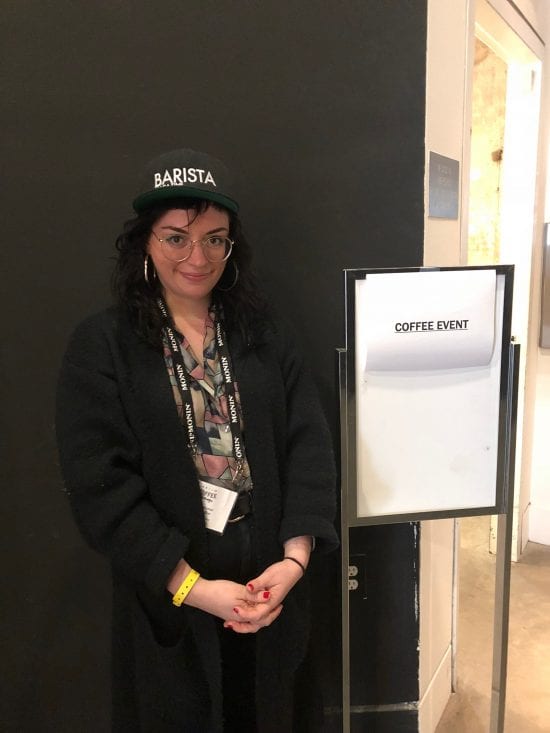
But let’s talk about that “long days and hard work” stuff, because there was a whole lot of that, too. I studied fine art in college, so from the very beginning, I approached barista competition much like a studio practice. The Ultimo roasting and training lab suddenly became my studio where I would spend hours dialing in espresso shots, cupping, experimenting with signature beverage concepts, writing and rehearsing my script, and getting into that introspective “flow” of enjoying my work. Unfortunately, like any studio practice, those hours of productivity were punctuated by plenty of wasted time taking lab-floor power naps, making melodramatic Instagram stories, watching Vine compilation videos with my fellow competitor Kevin, or just general, listless staring. I can only really speak for myself, and maybe I’m just saying this as a coping mechanism for my incredible capacity to be distracted, but I have to imagine this is probably a relatable experience.
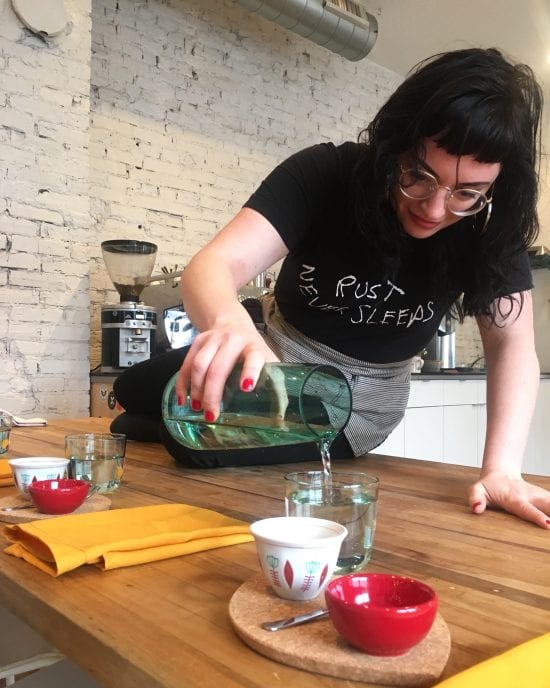
The misunderstanding that is most difficult for me to grapple with when it comes to preparing for a barista competition is that consumption of coffee is always a productive stimulant, therefore the competitor is always alert, inspired, and focused thanks to a constant flow of caffeine. Now, I am not a scientist, but in my experience, caffeine is a double-sided coin. While my first cup of coffee for the day is almost always a pleasant awakening, any subsequent caffeine consumption is a gamble. Now let’s say that “subsequent caffeine consumption” is something like sips from 20 espresso shots or a dozen iterations of a signature beverage. Even if you spit, somehow it doesn’t make a difference. So how did I cope with over-caffeination, you ask? The only way I know how: naps.
Naps are very important to me, and they were essential to preparing for barista competition. Stowed away in a corner of the training lab is a large blue Ikea bag, and inside is not just a pillow, but THE lab pillow. A power nap on the floor of the lab can transform me from a post-opening shift zombie into a fully functional, competitive barista in a short 15 minutes. There is a brewpub located directly below our training lab, and despite the wafting smell of sautéed onions and the same ol’ Pavement Spotify station fully audible through the floorboards, I still manage to find a comfortable position on the hardwood and plunge into a full REM cycle. Call it an act of self-care, I am a huge advocate for power naps.
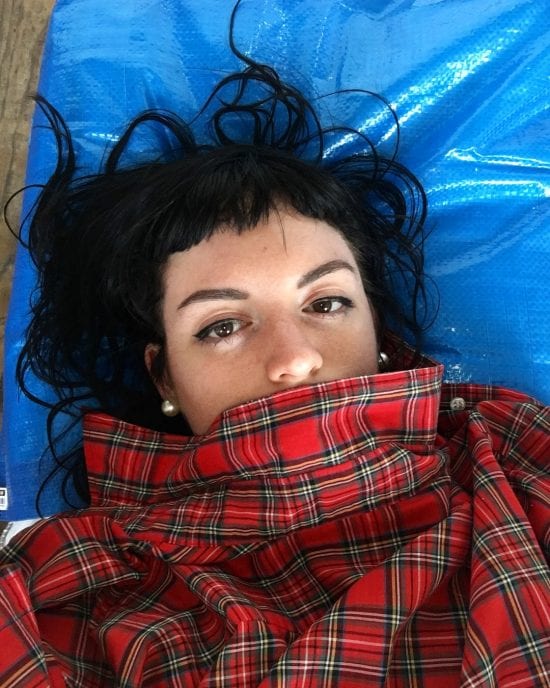
Undoubtedly, competing makes you a better barista regardless of your final score. Applying your skills outside of the context of a café shift and creating a routine that is cohesive and meaningful is a challenging experience. They say you are your own toughest critic, but suddenly there are two technical judges scrutinizing the levelness of your tamp, and it becomes essential to evaluate and alter the muscle memory you’ve been building for years. You can’t help but take this experience back to a bar shift.
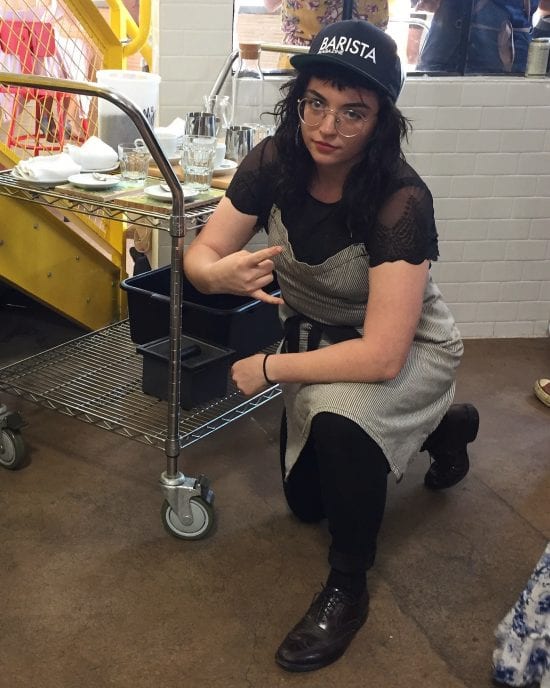
Above all, I love coffee because I’ve always loved sharing it with others. It’s no coincidence that my routine at the preliminaries in D.C. and the qualifiers in New Orleans both related back to the social nature of coffee. For qualifiers, I had to rearrange my script because originally the line, “I’m overwhelmed when I think about all of the spectacular people I’ve come in contact with across and behind the counter,” would make me burst into inhibiting tears of gratitude. Every. Single. Time. To get through that line, I had to move the whole section to the middle where I was too focused on pulling shots to be overcome with emotion. From my first Mocha Frappuccino with my Girl Scout troop back in elementary school, through the years I spent haunting the same coffee shop every day after high school with my best friends, to making cappuccinos for coworkers and slinging drinks served with small talk to crush-tomers, coffee has always been about connection to me. This first year of competing has been really unexpected and rewarding, and I am thankful for the opportunity to consider and share the experience of coffee in such an enthusiastic and unique context.
Amy placed 10th at the New Orleans qualifier and will compete at the United States Barista Championship in Seattle this April.
 ABOUT THE AUTHOR
ABOUT THE AUTHOR
Amy Trompeter is a barista at Ultimo Coffee Roasters in South Philadelphia. When not making coffee, she enjoys live music, surfing the web for memes, and making an amateur Instagram-based web-series called Studio Apartment Sommelier with her co-host/roommate, Mr. Baby Cat.

